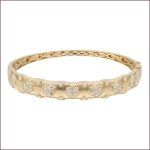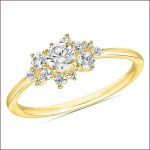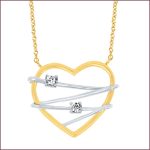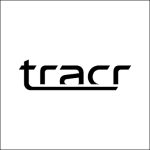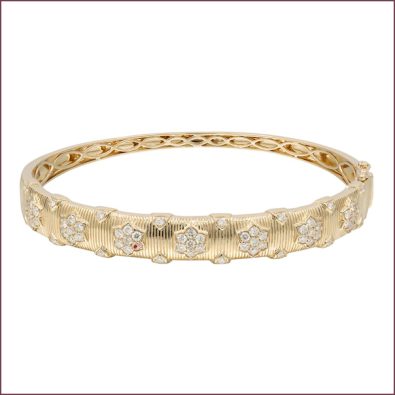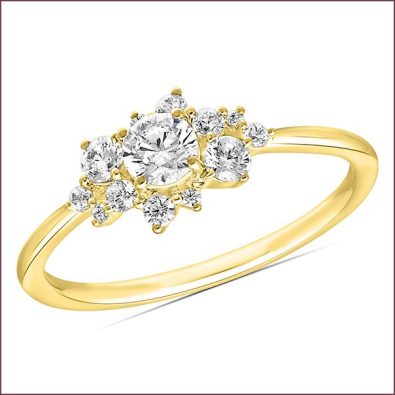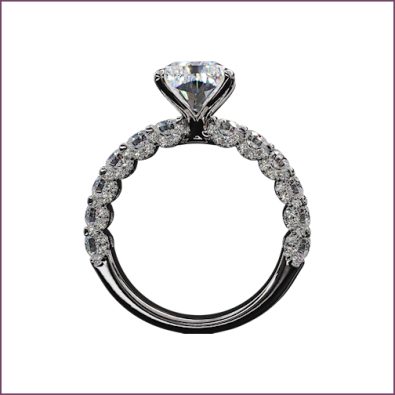How Retailers Can Create a Compelling Holiday Catalog or Lookbook

Summer is here and that means it’s time for the jewelry industry to start thinking about the upcoming holiday season. You’ve likely picked out some promising pieces at JCK Las Vegas, now you need to surface them to your customers and get them excited about shopping for jewelry gifts.
Producing a print or digital holiday catalog for distribution in your store and/or prominently displayed on your website is a classic marketing tactic. It may help to think of them as gift guides.
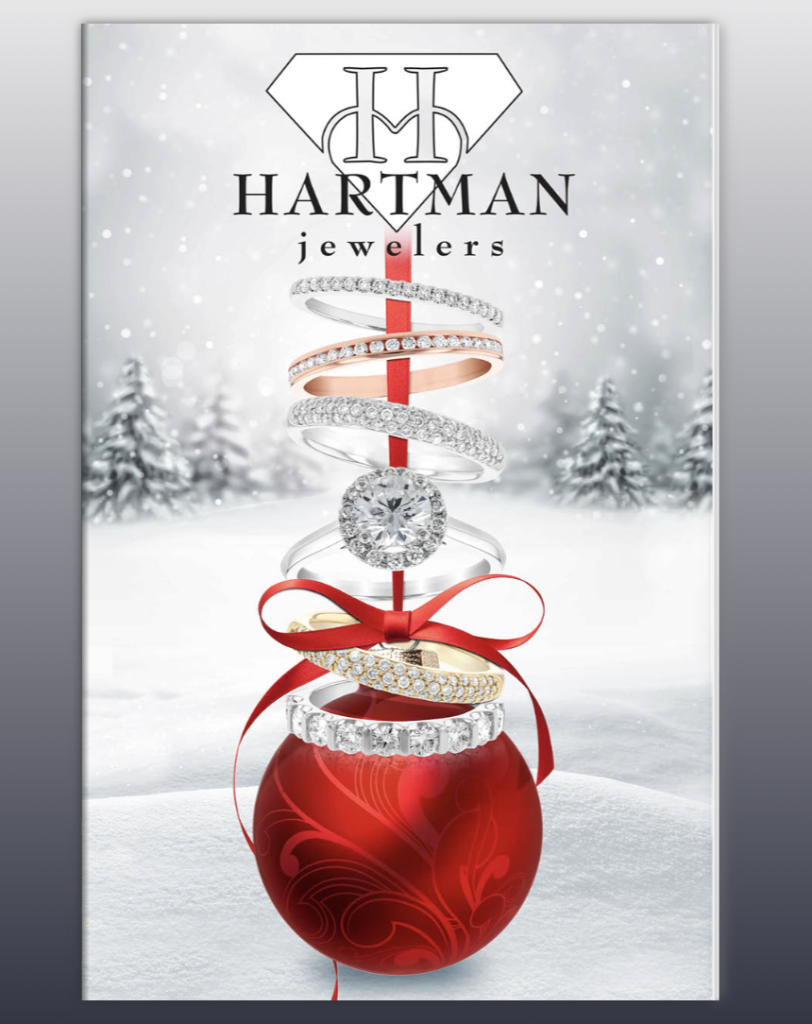
“They should contain curated suggestions—from the retail POV—to customers who are looking to their retailers for expert advice,” says Andrea Hansen, a Seattle-based business and branding consultant and the founder of Luxe Intelligence. “These catalogs or lookbooks should be a pre-selection of sorts, something that makes shopping easy. I think customers still look at their retailers as trusted sources to bring them the best of the best.”
A holiday catalog or lookbook can also “enable retailers to showcase their products and tell a compelling brand story,” says Laryssa Wirstiuk, founder and creative director of Joy Joya, a digital marketing agency for jewelry brands in Los Angeles. “It inspires customers, evokes emotions, and creates desire for the retailer’s jewelry offerings. Additionally, having a digital version increases convenience, accessibility, and reach, while maximizing sales opportunities.”
PRODUCTION TIMELINE
Holiday catalog planning should always take place in July. In fact, “it does not matter if you are producing a digital or print piece, if August comes around and production is not very under way, you are late,” says Hansen.
Working this far ahead “allows ample time for brainstorming, concept development, and collaboration with photographers, designers, and copywriters,” says Wirstiuk.
Pre-production tasks include selecting jewelry pieces, organizing photoshoots, and creating a shot list. “The actual photo shoot, copywriting and graphic design work can take two to three weeks or more,” she adds. Then it will be time for the post-production phase: editing, retouching, and finalizing layout design.
Aim to have the final, printed product in hand—or your digital content live—by the end of October or early November.
MUST-HAVE COMPONENTS
What are the essential elements of a holiday catalog or lookbook? Here’s a list.
- Theme or Headline
Having a theme in mind will help you curate the jewels you want to highlight and establish the look or feel you want the visuals to evoke. Ideas: holiday specials and promotions, last-minute gift ideas, or something more conceptual and romanced (e.g. “Magic in the Making,” which was Bergdorf Goodman’s theme for Holiday 2022).
- High quality, professional photography
You can do models, flat-lay product shots, or lifestyle images with carefully chosen props to create an editorial feel. Whatever approach you choose, “Capturing lifestyle imagery that evokes emotion is a key component of holiday marketing materials,” says Alisa Bunger, vice president, U.S. sales & operations, Chic Pistachio. “But it need not be limited to traditional gifting scenarios such as romantic couples. Capture the vibe of the moment, keeping your imagery current in terms of styling, but also in terms of values—include self-empowered women, same-sex couples, environmental messaging. These types of cues help consumers to relate to the brand and see how the jewelry can express values that they align with.”
- A variety of price points
But when curating, always lead with your best-sellers! - Compelling copy to highlight unique features and evoke emotions.
- Consistent brand identity markers through your choice of colors, typography, and design elements.
FLYERS FOR THE WIN
Not every store has a budget for an editorial-quality holiday catalog. That’s where single-page flyers and folded brochures come in.
“The great thing about holiday flyers is that they are not a big investment; they are typically less expensive than any other form of advertising during the holidays (i.e., print ads, billboards, radio and TV spots),” says Theresa Namie, merchandise manager at Ostbye.
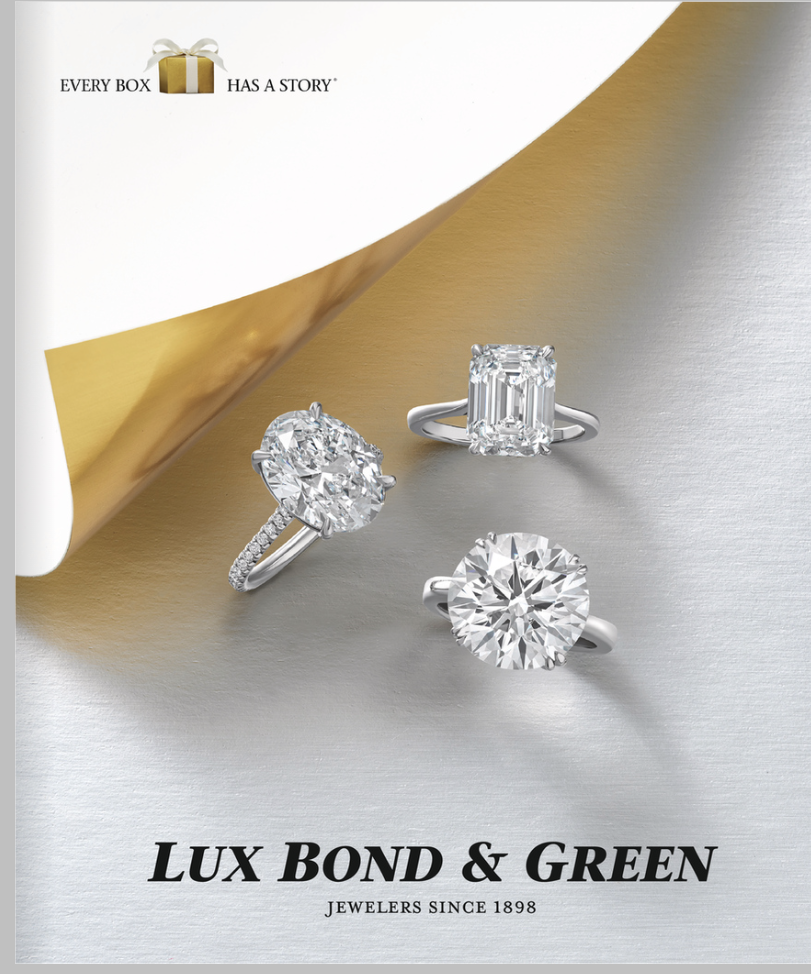
“During the pandemic, many people started to rediscover their mailboxes and enjoy something tangible to hold and read—our inboxes are so full and hard to get through not to mention the exorbitant amount of time we spent on Zoom calls,” she adds. “All of this makes paper appealing.”
Namie has found that EDDM [Every Door Direct Mail] mailing makes it easy to tailor your outreach to specific income, age, and location demographics for a better ROI.
Including a strong call to action, inclusive of a promotion, is also effective and can help you track the flyer’s performance. Copy that reads “Bring in this Flyer and Receive $50 off $250 or “Show this Postcard For Exclusive In-Store Offers” can potentially increase traffic. “You can also have the flyer double as an invite to a holiday shopping party in your store,” she suggests.


